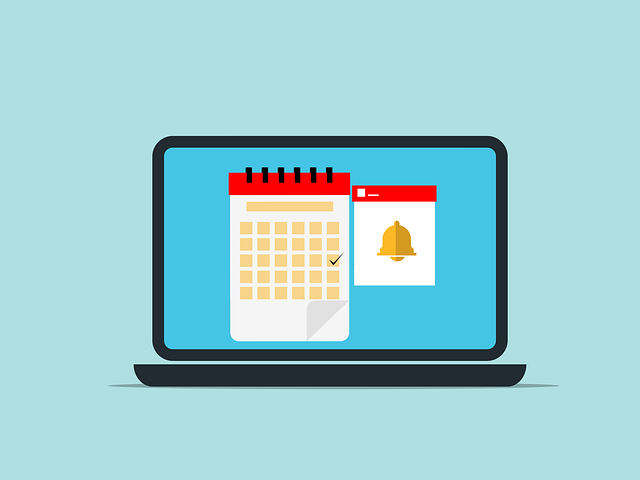Patient no-shows disrupt healthcare operations, leading to revenue loss and care continuity issues. Appointment alert systems using SMS, email, or automated phone calls reduce no-shows by up to 50% and improve patient punctuality. Personalized reminders enhance engagement, streamline clinic operations, optimize resource allocation, and boost overall healthcare delivery efficiency. Measuring success through key metrics like no-show reductions is vital for continually optimizing patient engagement outcomes.
In the pursuit of enhancing healthcare accessibility and efficiency, addressing patient no-shows is paramount. According to studies, no-show rates can significantly impact healthcare providers’ resources and patient care quality. This article explores technology-driven solutions, focusing on SMS, email, and call reminders, as powerful tools to combat this challenge. We delve into the strategic implementation of an appointment alert system, offering a comprehensive guide from understanding the root causes of no-shows to measuring success and improving patient engagement.
- Understanding Patient No-Shows and Attendance Challenges
- The Role of Technology in Improving Appointment Keeping
- SMS, Email, and Call Reminders: Effective Strategies
- Designing Personalized and Timely Appointment Alerts
- Implementing an Automated Appointment Alert System
- Measuring Success and Enhancing Patient Engagement
Understanding Patient No-Shows and Attendance Challenges

Patient no-shows and low attendance rates pose significant challenges for healthcare providers. In a busy clinic, missed appointments can disrupt schedules, reduce revenue, and hinder patient care continuity. Numerous factors contribute to this issue, including scheduling conflicts, forgetfulness, lack of transportation, or even apathy towards medical follow-ups. Understanding these barriers is the first step in implementing effective solutions.
An efficient appointment alert system, such as SMS reminders, email notifications, or automated phone calls, can significantly mitigate these challenges. By leveraging clinic reminder automation and healthcare scheduling reminders, practices can enhance patient engagement and improve attendance rates. A reminder call service acts as a gentle nudge, ensuring patients remember their appointments and encouraging prompt arrival, thereby fostering better healthcare adherence.
The Role of Technology in Improving Appointment Keeping

Technology plays a pivotal role in transforming appointment keeping from a manual, often forgettable process to a seamless and reliable system. Modern solutions like appointment alert systems leverage SMS, email, and voice calls to deliver automated healthcare scheduling reminders. These reminders serve as gentle nudges, ensuring patients remember their appointments and encouraging punctuality.
By implementing clinic reminder automation, healthcare providers can significantly reduce patient no-shows, a major concern in many clinics. A well-designed reminder call service can accommodate various patient preferences, sending personalized messages that foster better engagement. This not only improves attendance rates but also contributes to more efficient healthcare delivery and enhanced patient satisfaction.
SMS, Email, and Call Reminders: Effective Strategies

SMS, email, and call reminders have emerged as powerful tools to combat patient no-shows and boost attendance rates. These technology-driven strategies offer a multi-channel approach, ensuring patients receive critical appointment alerts through their preferred communication methods. By integrating an efficient appointment alert system, healthcare providers can automate the reminder process, improving patient engagement and streamlining clinic operations.
Implementing clinic reminder automation leverages data to send personalized messages, reducing the risk of no-shows. Email reminders can provide detailed information about the appointment while SMS offers a quick, direct communication method. Automated calls add a layer of accessibility, allowing patients who may not check their emails or texts regularly to stay informed. These healthcare scheduling reminders not only enhance patient responsibility but also contribute to optimizing resource allocation and improving overall healthcare delivery efficiency.
Designing Personalized and Timely Appointment Alerts

Designing personalized and timely appointment alerts is a powerful strategy to enhance medical attendance rates and reduce no-shows. An effective appointment alert system goes beyond generic reminders, incorporating patient preferences and behaviors. For instance, some patients may prefer SMS notifications, while others might opt for email or phone calls. Tailoring these alerts allows healthcare providers to build trust and improve engagement.
The timing of reminders is equally crucial. Sending alerts a day or two before the appointment can be effective, but research suggests that more immediate reminder call services can significantly boost medical attendance boost. No-show prevention tools should aim to capture patients’ attention when they are most likely to decide on their attendance, ensuring that the message reaches them at the optimal moment to make a difference.
Implementing an Automated Appointment Alert System

Implementing an Automated Appointment Alert System is a strategic move to enhance patient engagement and reduce no-shows in healthcare settings. This technology ensures patients receive personalized reminders via SMS, email, or phone calls prior to their appointments. By automating this process, healthcare providers can significantly improve medical attendance rates as well as patient satisfaction. Reminders serve as gentle nudge, reinforcing the importance of keeping scheduled appointments for efficient and effective treatment plans.
An effective appointment alert system goes beyond simple notifications. It allows patients to easily confirm or reschedule appointments, fostering a sense of responsibility and investment in their healthcare journey. Moreover, by leveraging reminder call services, healthcare facilities can ensure that even if patients forget or face unforeseen circumstances, they still receive timely interventions, thereby boosting overall medical attendance.
Measuring Success and Enhancing Patient Engagement

Measuring success is a key component of any effective appointment alert system. By tracking attendance rates and comparing them to baseline data, healthcare providers can objectively assess the impact of the reminder services. This includes analyzing the reduction in no-shows, which is a direct indicator of improved patient engagement. Enhancing patient engagement involves creating a seamless experience from initial scheduling to attendance, ensuring patients feel valued and connected to their care.
Implementing clinic reminder automation and integrating reminder call services can significantly reduce barriers to patient attendance. Effective measurement strategies, combined with these no-show prevention tools, enable healthcare providers to identify trends, adjust strategies as needed, and continuously improve patient engagement outcomes.
